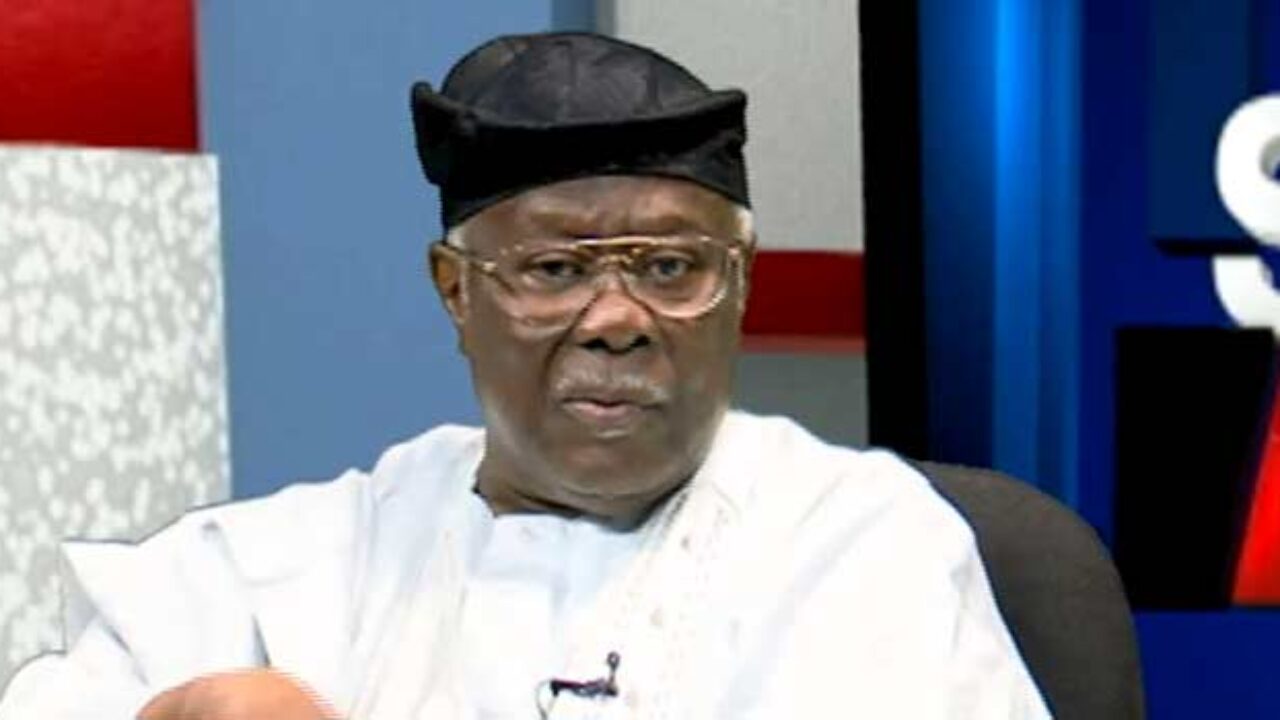Attorney-General warns against rising public debt as Tinubu seeks yet another loan

…Dangerous to economy, national independence, Fagbemi says
…President to present 2024 budget estimates to NASS today
By Tunde Opalana, Andrew Orolua
President Bola Tinubu yesterday sought Senate’s consideration and approval of, yet another, external loan, in the sum of $8,699,168,559 and €100 million.
The disclosure came on a day the Attorney-General of the Federation and Justice Minister, Lateef Fagbemi, SAN, sounded the alarm on the skyrocketing public debt profile in the country.
He said the development is tendentious as it would adversely affect the national economy as well as has capacity to impinge on the country’s independence.
The Attorney-General stopped short of saying continuous indulgence in such could turn the country into a banana republic.
On Monday, 26 June, 2023, the World Bank had announced that it approved a fresh $500 million loan for Nigeria. That was the second loan okayed for the Tinubu administration by the bank in its infant life.
As of June, 2023, the country’s foreign debt was put at $43.2 billion, with domestic debt at N54.1 trillion, giving a cumulative public debt of N113.4 trillion.
Add this latest bid, admixed with the Naira’s depreciation, total public debt could tip above N130 trillion.
In an executive communication to the upper chamber, read by the Senate President, Godswill Akpabio at plenary, President Tinubu submitted the Federal Government (FG)’s 2022-2024 external borrowing plan for consideration and early approval.
The President explained that the loan, if granted, will ensure prompt implementation of projects.
READ ALSO: Chike iginite music lovers at Trace Live
President Tinubu noted that the past administration of former President Muhammadu Buhari approved a 2022-2024 borrowing plan by the Federal Executive Council (FEC) held on May 15, 2023.
Explaining what the proposed new loan would be for, he said in the letter: “The project cuts across all sectors, with specific emphasis on infrastructure, agriculture, health, water supply, roads, security, and employment generation as well as financial management reforms.
“Consequently, the required approval is in the sum of $8,699,168,559 and €100 million.
“I would like to underscore the fact that the projects and programmes in the borrowing plan were selected based on economic evaluations as well as the expected contribution to the social economic development of the country, including employment generation, and skills acquisition.
“Given the nature of these facilities, and the need to return the country to normalcy, it has become necessary for the Senate to consider and approve the 2022- 2024 external abridged borrowing plan to enable the government deliver its responsibility to Nigerians.”
It is expected that the Senate may today refer the loan request to its committee on Foreign and Local Debts for consideration and recommendation.
Meanwhile, President Tinubu is expected to, today, present to the joint sitting of the National Assembly the 2024 budget estimate of N27.5 trillion.
Prompt presentation of the budget is geared towards FG’s resolve to ensure a January-December budget circle.
Both Akpabio and the Speaker, House of Representatives, Rep.Tajudeen Abbas, will lead other lawmakers to receive the President who is expected to physically perform the annual budget presentation ritual.
Recall that the FEC proposed N27.5 trillion for the 2024 fiscal year for submission to the National Assembly.
The FEC pegged the price of crude oil at $73.96, exchange rate of $700, and oil production of 1.78 million barrels per day –assumed anchors for the budget.
The FEC also proposed the inflation of 21 per cent and Gross Domestic Product (GDP) growth rate of 3.76 per cent.
The aggregate expenditure is estimated at N26.01 trillion for the 2024 budget which includes statutory transfers of N1.3 trillion, non-debt recurrent expenditure of N10.26 trillion, debt service estimated at N8.25 trillion as well as N7.78 trillion being provided for personnel and pension cost.
It said: ”Debt service increased because N22.7 trillion ways and means was securitized meaning it became a Federal Government debt at nine per cent.
“So that is easily about N2.1 trillion. This describes that equally personnel cost went up because of transfers under the agreement with labour.”
The FEC approved the 2024-2026 Medium Term Expenditure Framework (MTEF) and Fiscal Strategy Papers (FSP) and President Tinubu transmitted the MTEF-FSP to the National Assembly for consideration and approval on 31 October.
The upper chamber passed the framework after considering a report submitted by its Committee on Finance during the plenary.
Senate approved the expenditure framework with a total spending of N26 trillion for the 2024 budget fiscal year and a borrowing plan of N7.8 trillion.
The lawmakers also approved an exchange rate of N700 to a U.S. dollar and adopted the benchmark of oil price for 73 dollars per barrel of crude oil and 1.78 million barrels per day.
The special intervention (recurrent) was pegged at N200 billion while special intervention (capital) was marked at N7 billion.










